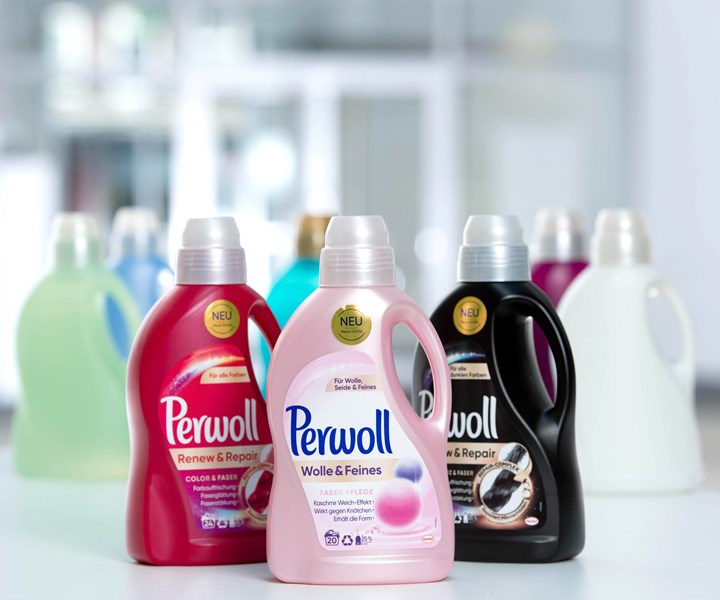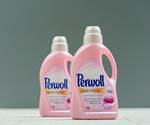Henkel Launches Recyclable Black Detergent Bottles
Recycle-friendly black HDPE bottles are included in Henkel’s laundry detergent line with 25% PCR.
Henkel AG of Germany announced last month that from now on, all HDPE bottles for its Perwoll line of laundry detergents in Western Europe will not only be fully recyclable, but also contain 25% post-consumer recycle (PCR). The bottles are molded by Alpla of Austria.

All of Henkel’s Perwoll laundry-detergent bottles now contain 25% post-consumer HDPE, including the bottle at right with a recycle-friendly black colorant.
Of particular interest, the “fully recyclable” label applies also to Perwoll’s “Renew & Repair” variant, which comes in a black bottle. Historically, black-pigmented bottles have presented a challenge to recycling because the carbon black pigment defeats sorting by near-infrared (NIR) detection technology. Working together with global masterbatch supplier Ampacet, Henkel last year introduced its first recyclable black HDPE bottles using Ampacet’s carbon-black-free Rec-NIR-Black concentrate, which is said to be compatible with NIR scanning. These bottles were for Henkel’s Bref brand of toilet cleaners. Ampacet’s black masterbatch was named “Product Technology Innovation of the Year” at Plastics Recycling Awards Europe 2019. Besides being fully recyclable, the new black Perwoll bottles also contain 25% PCR.
Related Content
-
Foam-Core Multilayer Blow Molding: How It’s Done
Learn here how to take advantage of new lightweighting and recycle utilization opportunities in consumer packaging, thanks to a collaboration of leaders in microcellular foaming and multilayer head design.
-
How to Extrusion Blow Mold PHA/PLA Blends
You need to pay attention to the inherent characteristics of biopolymers PHA/PLA materials when setting process parameters to realize better and more consistent outcomes.
-
Multilayer Solutions to Challenges in Blow Molding with PCR
For extrusion blow molders, challenges of price and availability of postconsumer recycled resins can be addressed with a variety of multilayer technologies, which also offer solutions to issues with color, processability, mechanical properties and chemical migration in PCR materials.












